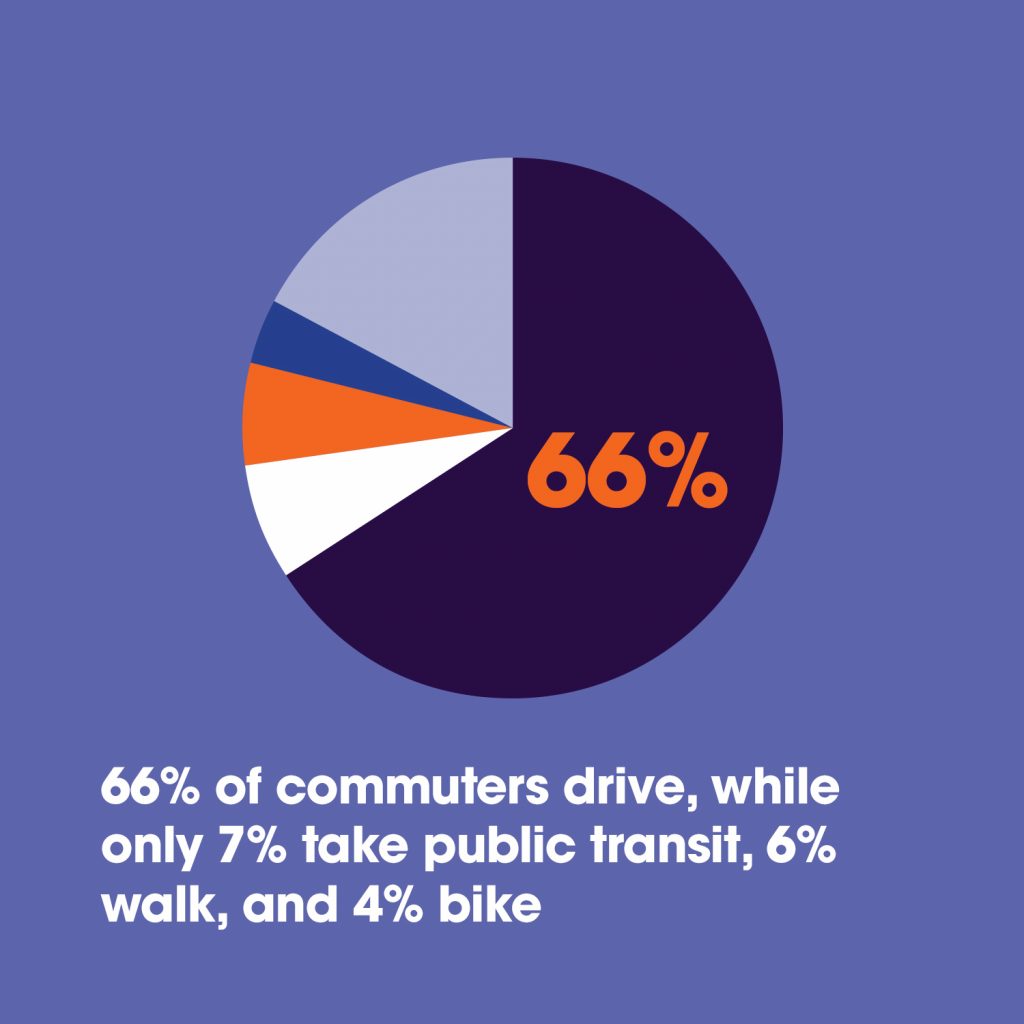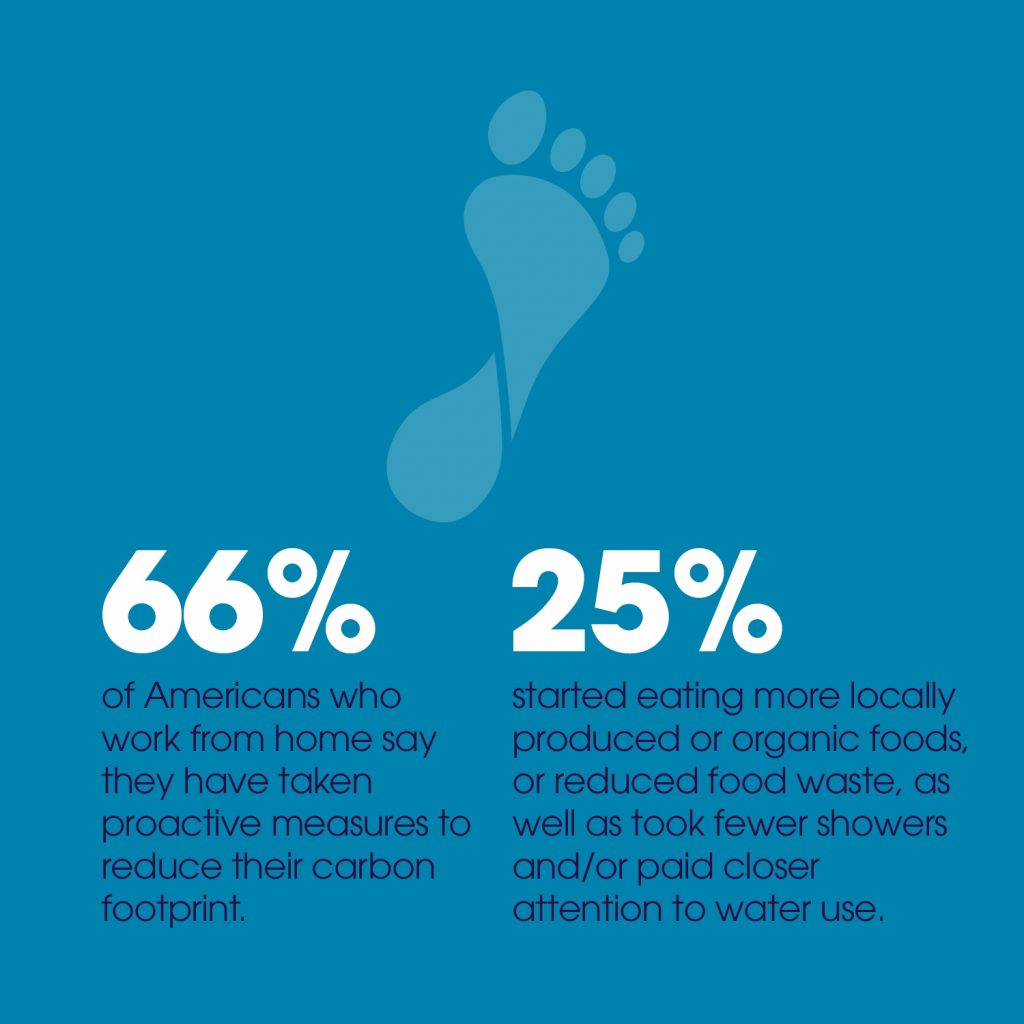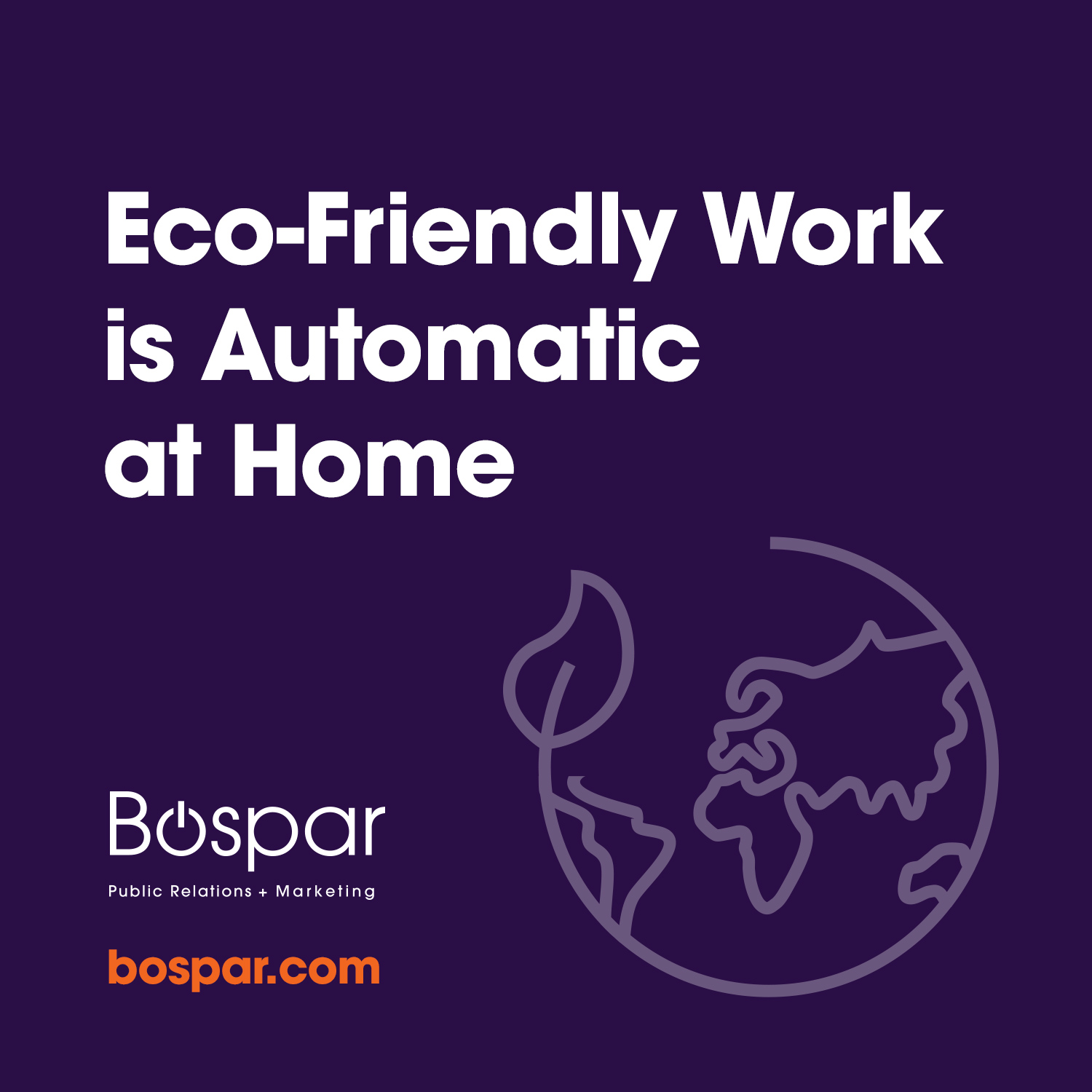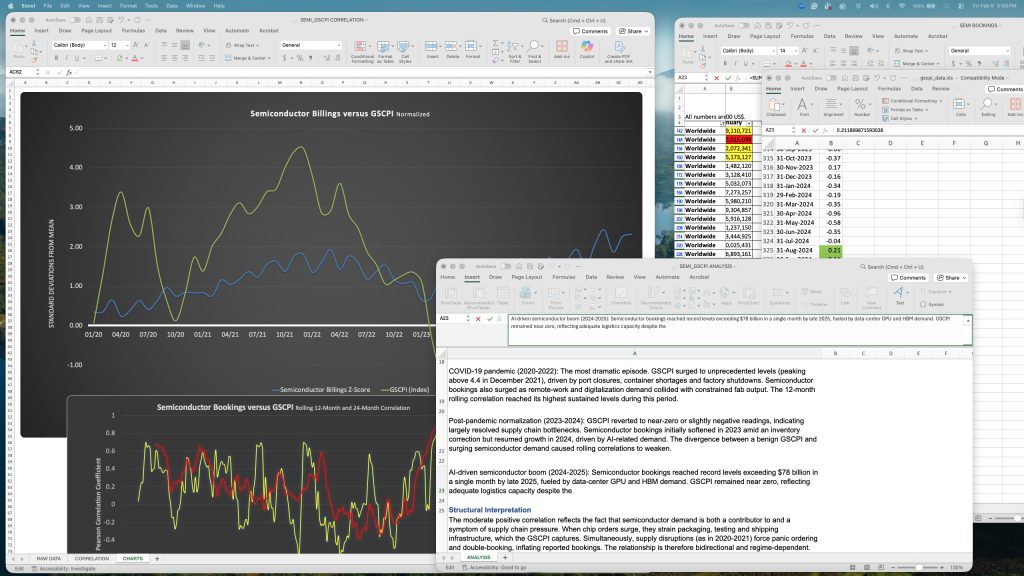Only 7% of Americans who commute use public transportation
SAN FRANCISCO — April 4, 2024 — Bospar, the “politely pushy” PR and marketing firm that puts tech and health companies on the map, today announced the results of the Bospar Earth Day Survey. Nearly every respondent who works from home (95%) say they are working more eco-friendly. The top explanations for this naturally eco-friendly behavior were:
- 55%: Eating more at home vs. ordering in
- 48%: Recycling and composting
- 47%: Using more natural light or energy-efficient lights
- 42%: Eliminating single-use plastics

Taking this a step further, two-thirds (66%) of Americans who work from home say they have taken proactive measures to reduce their carbon footprint. Twenty-five percent started eating more locally-produced or organic foods, reduced food waste, took fewer showers and/or paid closer attention to water use.
For those who commute to work, they remain firmly on the road to get there. Only 7% of commuters take public transit, while 66% hit the road in their cars. A few others are able to walk (6%) or bike (4%) to work.
“The results of the research reveal that workers don’t even need to try to be better stewards of the Earth while working from home; it’s built in,” said Curtis Sparrer, a Bospar principal. “However, it’s encouraging to see so many people taking those natural advantages and building on them with additional proactive measures on Earth Day.”
The survey also discovered that more than three-fourths of Americans (77%) say working from home is better for the planet. In fact, younger people, specifically 58% of Gen Zers and 52% of Millennials, believe that celebrating Earth Day while requiring employees to commute to work is hypocritical.
But for Gen Xers and Boomers, the attitude flipped. The older the respondents, the more likely they believed companies could celebrate Earth Day and compel their staff to commute.
Bospar also asked respondents why they thought it was hypocritical for companies to celebrate Earth Day and require employees to commute. The top answers were:
- 63%: Generally, transportation and office buildings increase carbon emissions.
- 58%: Working from an office typically increases the use of plastics, chemicals and other hazardous or environmentally harmful materials.
- 32%: Food waste often increases when people primarily work from offices.
Additionally, respondents believe working from home contributes to less commuting stress (62%), better work/life balance (61%), eating healthier (47%) and having more time to recover from illness (40%) and exercise (39%). Nearly four in 10 Americans (38%) have asked to work from home because they feel they can be more environmentally conscious, as a majority (57%) acknowledge they recycle more due to working from home.

“Earth Day is now a test of optics for brands,” continued Sparrer. “Companies actively enforcing return-to-office policies risk appearing inauthentic and clueless if they try to greenwash during Earth Day. You can’t have your RTO cake and save the planet, too.”
Methodology
Propeller conducted its national online survey for Bospar with 1,018 U.S. adults between March 18 and 22. Survey responses were nationally representative of the U.S. population for age, gender, region, and ethnicity. The maximum margin of sampling error was +/- 3 percentage points with a 95% level of confidence.
About Propeller Insights
Propeller Insights is a full-service market research firm based in Los Angeles. Using quantitative and qualitative methodologies to measure and analyze marketplace and consumer opinions, it works extensively across industries such as travel, brand intelligence, entertainment/media, retail and consumer packaged goods.
Media Contact
Brent Shelton



